
Enviro
15:44, 10-Dec-2018
Real Time China: Reviving Dongting Lake
Updated
15:19, 13-Dec-2018
By Hu Chao, Wang Peng, Li Minghu
02:34
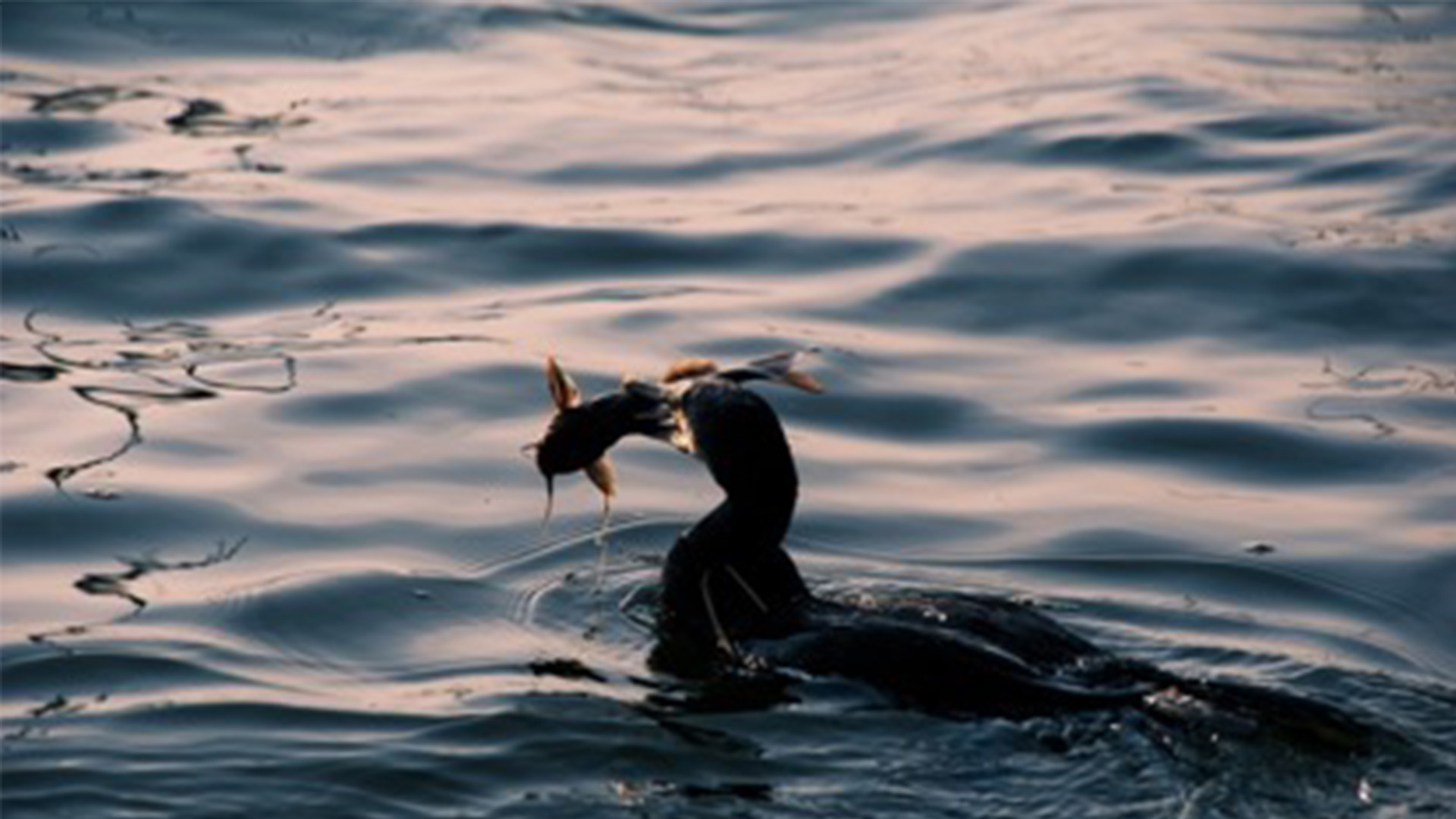
Dongting Lake along the Yangtze River is China's second largest freshwater lake. Called "the kidney of the Yangtze River," it is home to a major wetland. The lake sits across three cities in central China's Hunan Province, covering an area of around 2,600 square kilometers with 60 percent of the lake sitting along the city of Yueyang.
Unfortunately, the lake was exploited in the past and its ecological conditions deteriorated. But dramatic changes have occurred thanks to the recent efforts that the local government has made to reverse the trend.
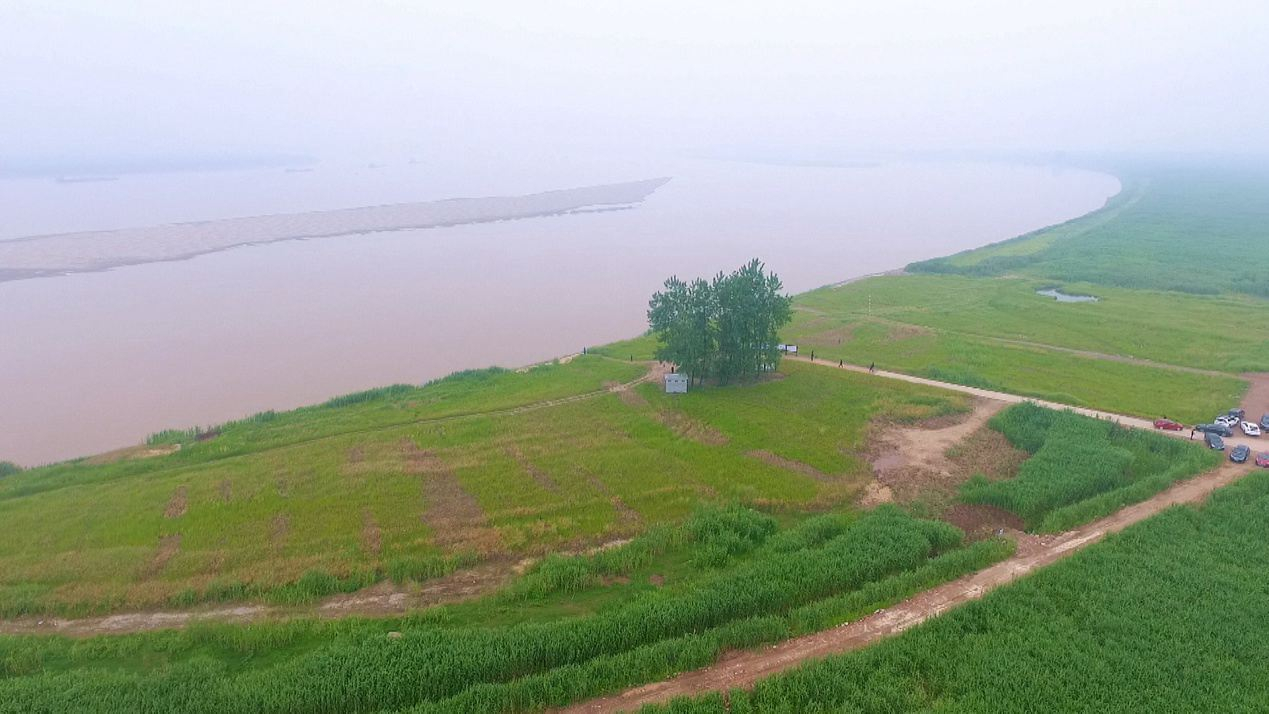
The Junshan Hualong Dock in Yueyang, once a gravel-trading place, now is covered in green. /CGTN Photo
The Junshan Hualong Dock in Yueyang, once a gravel-trading place, now is covered in green. /CGTN Photo
One major action is banning illegal gravel picking, which was once a big environmental threat to the Dongting Lake Wetland. Hills of gravel sitting on the riverbed had severely damaged the wetland. The local government has shut down all 39 gravel docks, almost all of it in the city, and planted new grass, turning the once barren land green.
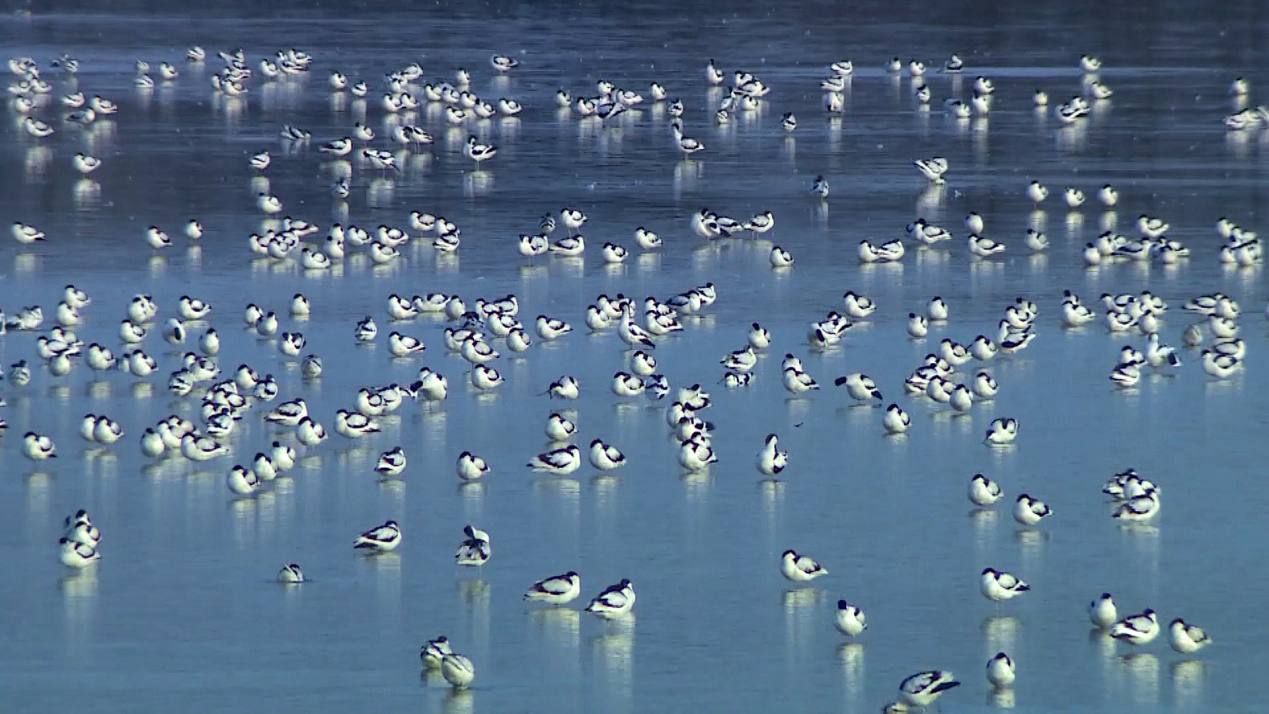
A bird-viewing Festival is held in the city of Yueyang every year. /CGTN Photo
A bird-viewing Festival is held in the city of Yueyang every year. /CGTN Photo
Now the improved wetland has attracted migratory birds. Local experts say more than 200,000 migratory birds come to stay here every year.
More than 160 wild elk have also settled here. A rescue center for elk was built in 2016. Now more than 200 workers and volunteers have been protecting these beautiful animals. They carry out patrols along the lake twice a month and help trapped or injured elk.
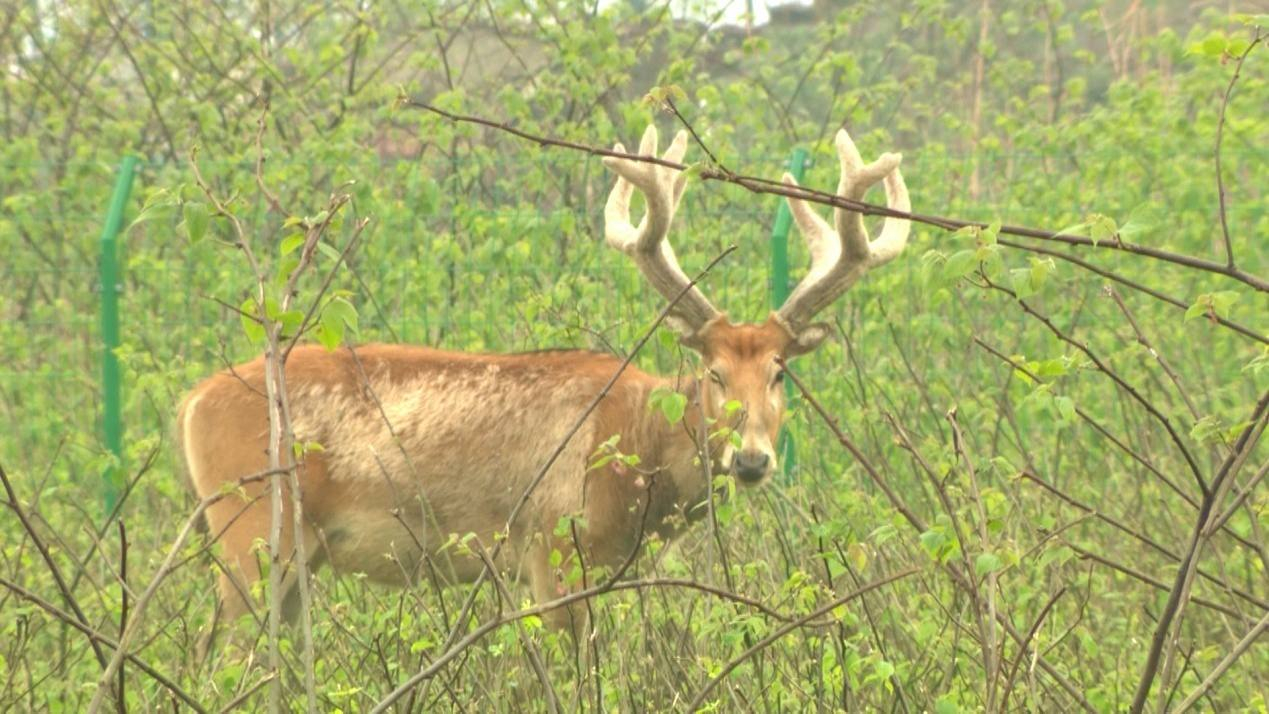
A wild male elk in the Dongting Lake Natural Reserve /CGTN Photo
A wild male elk in the Dongting Lake Natural Reserve /CGTN Photo
Another action is the closing of paper-making factories. Dongting Lake has been covered by large areas of reeds. They used to provide the raw material for making paper. In order to reduce pollution, the local government has closed most local paper-making factories. The few remaining ones are slated to close by the end of this year.
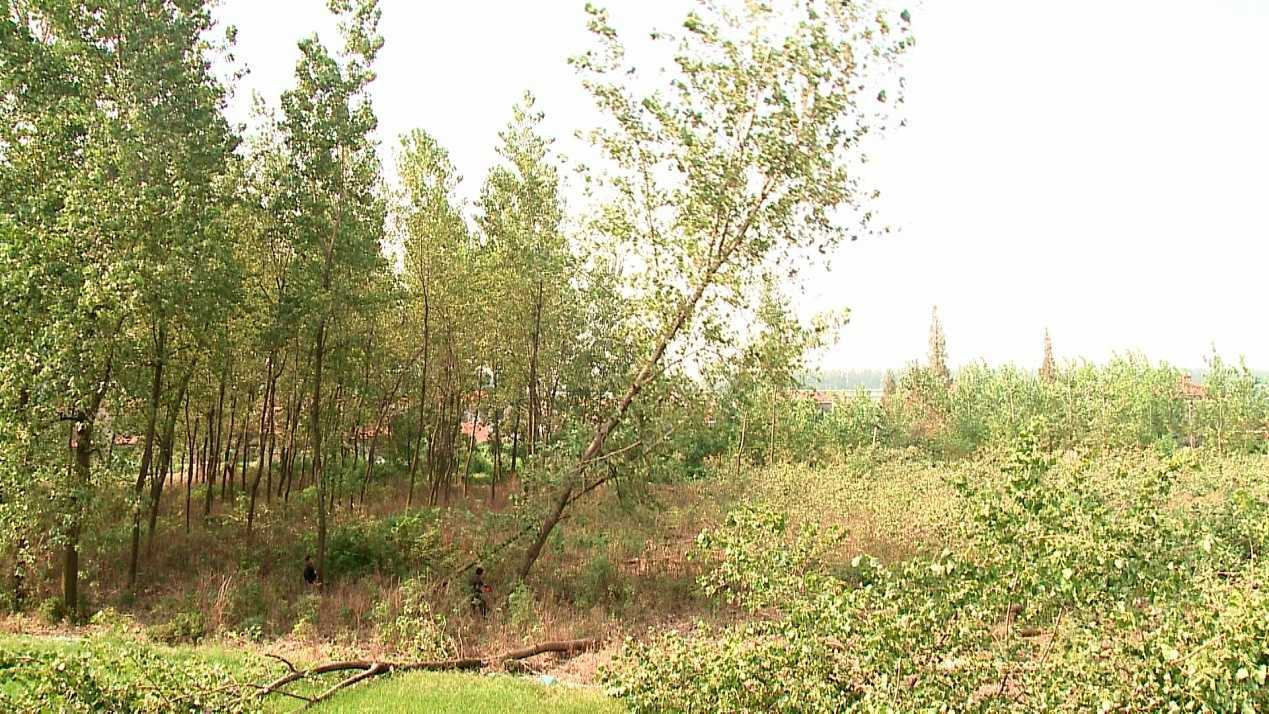
Workers were cutting down the black poplar in the Dongting Lake Natural Reserve. /CGTN Photo
Workers were cutting down the black poplar in the Dongting Lake Natural Reserve. /CGTN Photo
Millions of black poplar were also cut down in the core area of the Dongting Lake Natural Reserve to restore the ecological conditions. The black poplar, a species introduced from overseas, had been planted widely in Dongting Lake in the 1980s as raw material for paper-making. But the foreign species has seriously affected the original ecological conditions in the lake.
There is currently a three-year action plan to further improve the environment. The plan runs through 2020.

SITEMAP
Copyright © 2018 CGTN. Beijing ICP prepared NO.16065310-3
Copyright © 2018 CGTN. Beijing ICP prepared NO.16065310-3